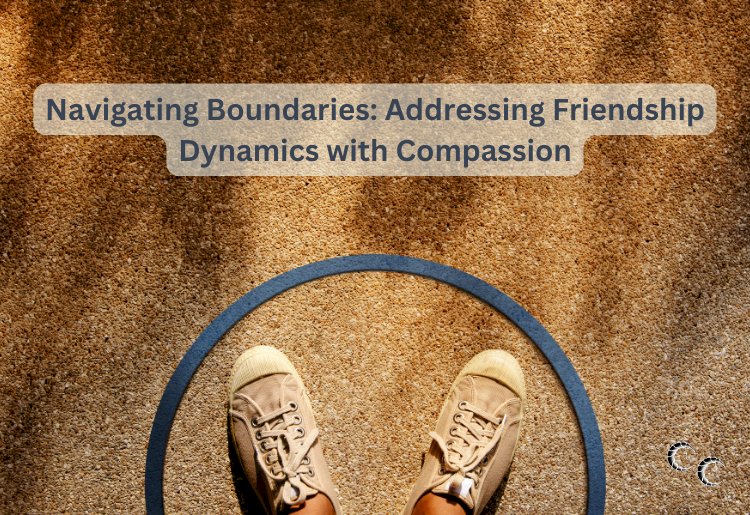Navigating Boundaries: Addressing Friendship Dynamics with Compassion

Dear Reader,
Thank you for reaching out with your concern about a challenging situation with a friend. It can be difficult to navigate boundaries, especially when it feels like your kindness is being taken advantage of. Let's explore some strategies to address this issue with sensitivity and compassion while preserving the integrity of your friendship.
Hey,
I've got a friend who's been taking advantage of my kindness. How do I address this without damaging the friendship?
Your question highlights a common dilemma faced by many individuals who find themselves in imbalanced relationships. It's essential to address the situation thoughtfully to maintain mutual respect and understanding within the friendship. Let's delve into some practical tips to help you navigate this delicate conversation with your friend.
-
Reflect on Your Feelings: Before initiating a conversation with your friend, take some time to reflect on your feelings and experiences. Identify specific instances where you felt your kindness was being taken advantage of and how it made you feel. Understanding your own boundaries and emotions will help you communicate more effectively with your friend.
-
Choose the Right Time and Place: Approach the conversation at a time when both you and your friend are calm and receptive. Choose a private setting where you can have an open and honest discussion without interruptions. Avoid addressing the issue in the heat of the moment or during tense situations.
-
Use "I" Statements: When expressing your concerns to your friend, use "I" statements to communicate your feelings and observations without placing blame. For example, instead of saying, "You always take advantage of me," you could say, "I've noticed that I often feel overwhelmed by our interactions, and I'd like to discuss how we can find a better balance."
-
Set Clear Boundaries: Clearly communicate your boundaries and expectations to your friend in a respectful and assertive manner. Be specific about what behaviors are causing you discomfort and how you would like them to change. Setting boundaries is essential for maintaining healthy and mutually respectful relationships.
-
Listen and Validate Their Perspective: Give your friend the opportunity to share their perspective and feelings about the situation. Listen attentively and validate their emotions, even if you don't agree with their viewpoint. Show empathy and understanding towards their experiences while also advocating for your own needs.
-
Focus on Solutions: Shift the focus of the conversation towards finding solutions and compromises that work for both of you. Brainstorm together ways to improve communication and address any underlying issues that may be contributing to the imbalance in your friendship. Approach the conversation with a collaborative mindset, aiming for a resolution that strengthens your bond rather than causing further conflict.
Addressing issues of boundary-crossing in friendships can be challenging, but it's essential for fostering healthy and fulfilling relationships. By approaching the conversation with empathy, honesty, and a willingness to find common ground, you can navigate this situation while preserving the integrity of your friendship.
I hope these tips help guide you through this conversation with your friend. Remember, open communication and mutual respect are key to maintaining strong and resilient friendships.
Wishing you courage and clarity as you address this issue with your friend,
Cordelia Cross
If you're seeking advice, please email [email protected], and your message might become one of our future posts.






























